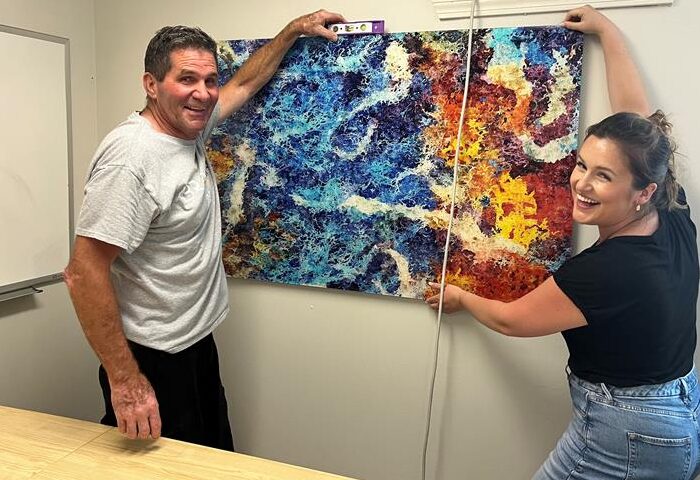At Heading Home, we understand the importance of prioritizing mental health. It is important to meet clients where they are, as the journey out of homelessness looks different for each individual. For 17+ years running, Heading Home’s retention rates have been 90%+, meaning clients who leave homelessness behind remain housed one year later. In honor of Mental Health Awareness Month, we spoke with Julia Collins, our Family Services Health/Mental Health System Navigator, to learn more about the importance of assisting our clients with their mental health at Heading Home.
What is your role at Heading Home and how does it relate to mental health?
My role at Heading Home as the Family Services Health/Mental Health System Navigator is connecting families to mental health services, bridging the gap between healthcare providers and our clients, and collaborating with case managers to provide comprehensive supportive services.
How is mental health important to our mission at Heading Home?
Heading Home pairs stable shelter and housing programs with supportive special services to help adults and children leave homelessness behind. Supportive services, including mental health support and access to healthcare, are unique to individuals and their experiences. In my role on the Clinical Services team, I hope that by bringing awareness to the mental health issues faced by people experiencing homelessness we can foster a more compassionate and inclusive community that provides the necessary support and resources to help them on their paths to recovery and self-sufficiency.
What does mental health awareness mean to you? And at Heading Home?
Mental health awareness to me is having conversations with people about their mental health experiences and exploring the various, yet often pervasive, ways mental health can impact someone’s life. I think the awareness comes from talking to others about their own struggles and what allowed them to seek mental health care or what barriers they faced when trying to seek care so we can learn and do better for the next person.
We encourage staff to consider their self-care and their own mental well-being. Self-care can often sound over-complicated and start to feel like a daunting task. But it can be as simple as throwing away trash in your car, brushing your teeth, or doing laundry.
If you or someone you know is struggling with a mental health crisis, please reach out to one of the following services:
Massachusetts Behavioral Health Help Line: 833-773-2445 or 833-773-BHHL Massachusetts Behavioral Health Help Line
988- Suicide and Crisis Lifeline



